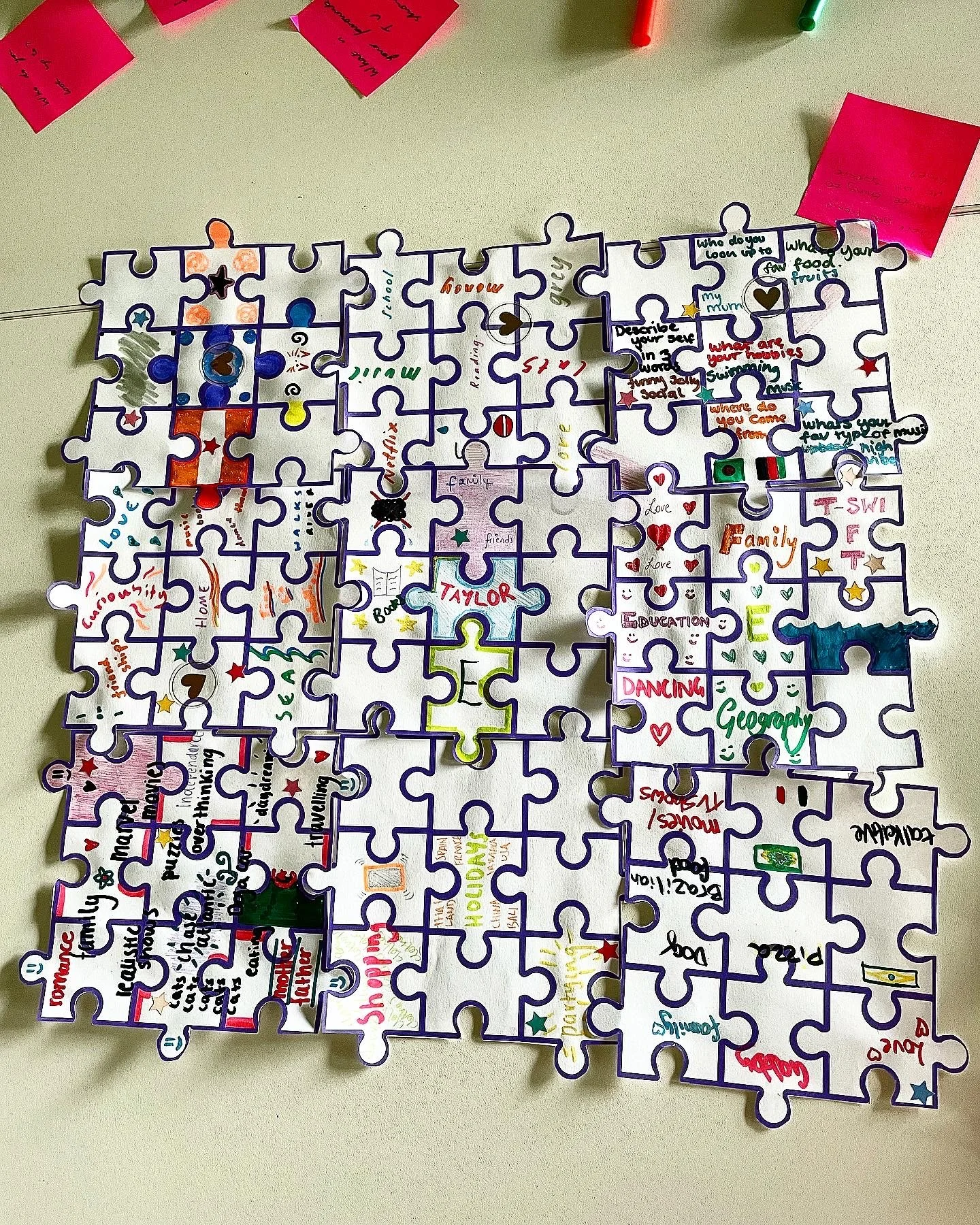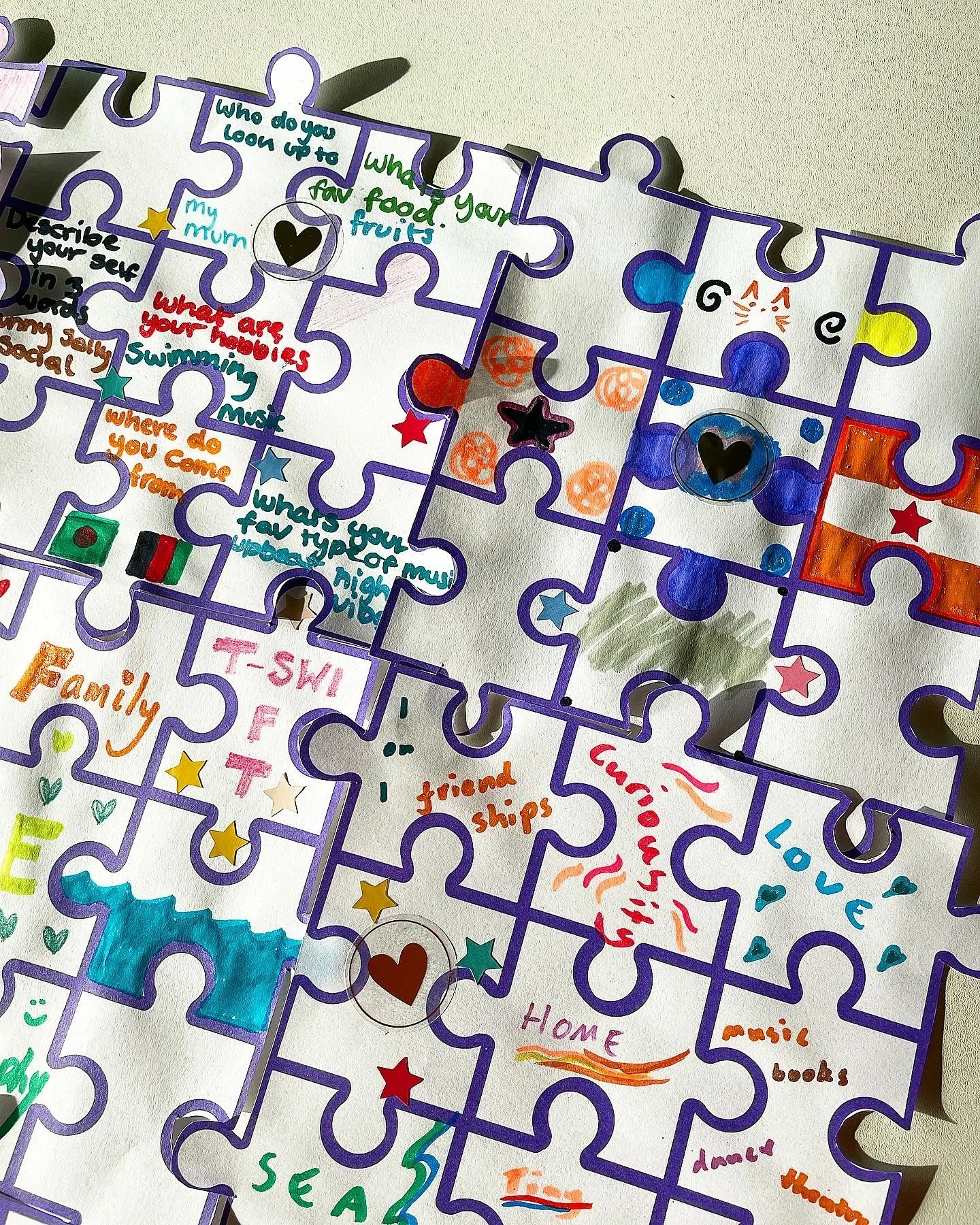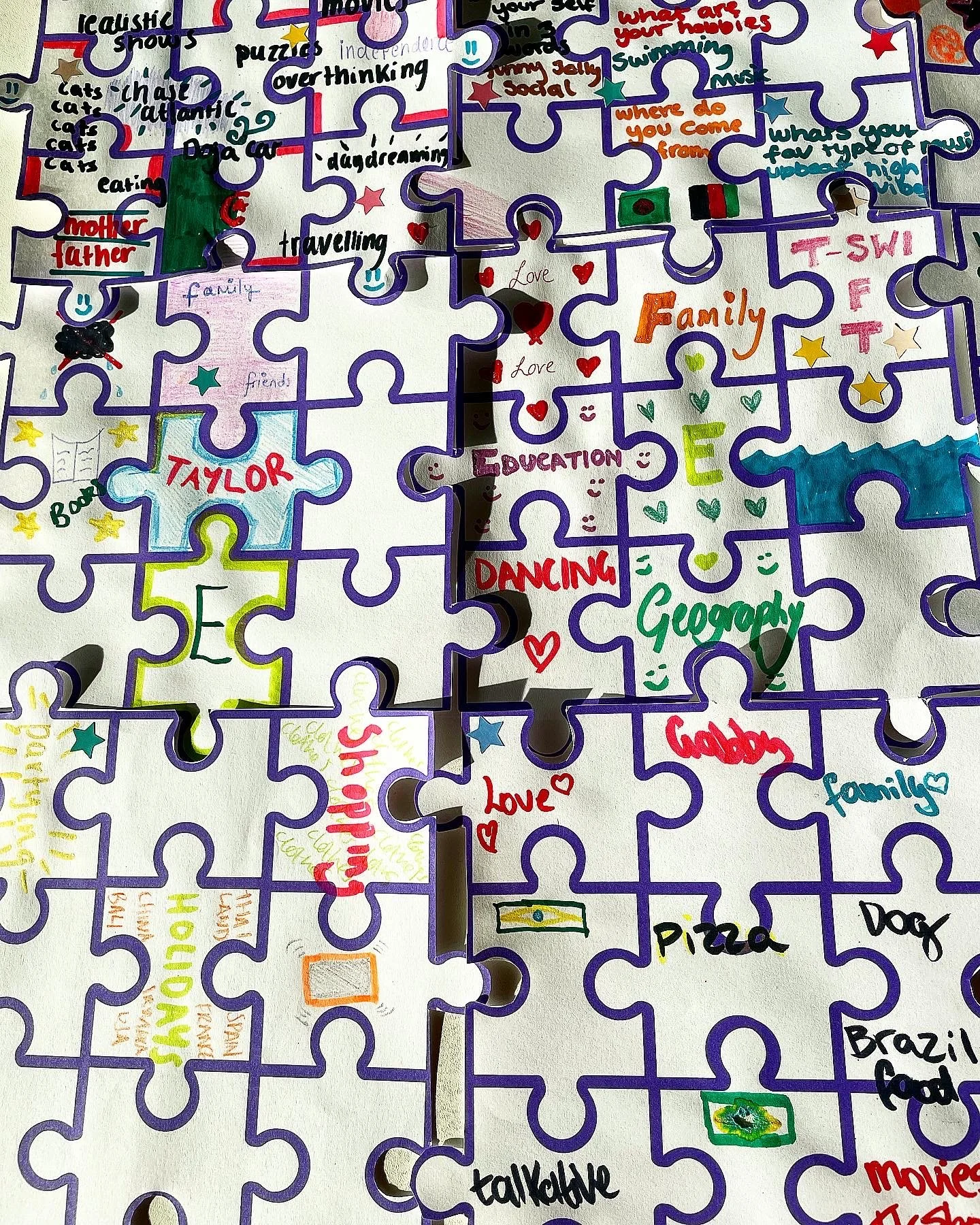workshop 2
Identities, individual & shared
overview
In this second workshop, you get to know each other a little more, and in doing so begin to build a picture of your shared identity as a collective, too.
You’ll explore the ways in which we are connected, and the potential strengths and challenges that arise from similarities and differences within the group.
you will need
Post-its
1 x puzzle piece template per person, printed.
Glitter, stickers, colours to decorate puzzle
SET-UP
Have a central table with everyone sat round in a circle, with snacks and stationery scattered about.
When the girls enter, be warm and enthusiastic. It is brave to come back for a second week.
Reiterate how grateful you are to have this space with them that's different from other spaces shared by students and staff in the school.
check-in:
Go round the group and ask each person to ‘tell the story’ of their names, or offer a piece of information about it. For example, where does your name come from, who gave it to you, does it have a meaning, do you like it, do you use a nickname?
Creative activity
Give everyone a few post-it notes and ask them to come up with some more questions that you could ask to get to know someone better, similar to the one in the check-in. See ideas for these below.
As you each write on post-its, stick them in the centre of the table so there are lots there to choose from. Then, allow everyone to wander round the table and pick out ones they feel comfortable answering. This can be a silent exercise, or a way of structuring a conversation where you take turns to pick a post-it, read it out, and share your answers round the group.
Next, hand out the puzzle pieces. Each individual piece will represent their own multi-faceted identities.
The post-it notes can be used as prompts for filling each of the puzzle pieces. Alternatively, you could divide each section of their piece into a different area of their identity (see prompts below).
Or, give the girls total creative autonomy over how they decorate and fill the puzzle piece!
Girls then bring their personal piece to assemble the larger puzzle, creating a large collective puzzle representing your collective identity. Reflect on this – what stands out, what’s similar, what’s different? Note that the shape will not look ‘complete’ – what could this represent about you as a group?
Take a photo of your puzzle, or stick it on a large sheet of paper to make a poster.
Discussion prompts
Questions for post-it notes:
Where is home?
What do you love to spend your time doing?
What music do enjoy when you feel..... happy/ sad/ excited?
Something that makes me tick is...
Something I can't stand is...
I can't stop laughing when…
One of my favourite activities to do with friends is...
One of my favourite activities to do on my own is...
Something I have learnt from my family is...
My favourite subject at school is...
Something I would like to have achieved in 10 years is...
Categories for puzzle pieces:
Future hopes and dreams
School and work
Fun, adventure and hobbies
Friends and relationships
Family
Religion and spirituality
Culture and nationalities
check-out
On a post-it note or in your journals, write down one or all of the following:
Something you shared about yourself that felt brave
Something you learnt about someone else that surprised you or challenged your assumptions
Something you had in common with others in the group
Something that felt different or unique about you in the group
FURTHER READING / THINKING
Systemic therapy ideas
This workshop encourages the group to celebrate our interconnectedness, and the ways in which we help shape each others’ identities and form collective identities. The puzzle is not a hierarchy, but every piece is as important as each other.
These are key ideas in systemic therapy, often used with groups or families, and a helpful way of thinking for Be Her Leaders. Systemic therapists take a de-centred, facilitative approach, acknowledging their own subjectivity. In these workshops, we encourage you to lead with the girls, rather than taking a top-down approach.
Your identity and subjectivity
If you are aware of having more structural privilege than students in your group, we encourage you to acknowledge this and address it; make a commitment to learning and listening together, and encourage Be Her Lead to be a springboard for activism.
We also encourage you to be open about what you don’t know or are unsure about, and as open about your identity as you feel comfortable with. Alongside this, celebrate the diversity of the group, bringing together different cultural resources, experiences and knowledge.




